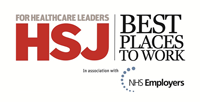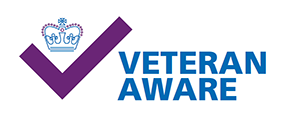Our Services A - Z - Paediatric and Neonatal Services
About the service
Our Neonatal and Paediatric Services look after babies, children and young people with a wide range of conditions and illnesses, including those with long term conditions such as asthma, epilepsy or diabetes, those who need urgent or emergency care or require uncomplicated surgery and those who need support in the community with a neuro-disability.
We care for children from birth right through to the age of 16, or sometimes 18 years if they have a long term condition, when we will then help them transition across to adult services in as smooth a way as possible.
We have a highly specialist paediatric team made up of consultants, middle grade and junior doctors, advanced paediatric and neonatal nurse practitioners; supported by a dedicated team of trained children’s, neonatal and community nurses, dietitians, play specialists, health care assistants, hospital teachers, caterers, housekeepers, ward clerks and secretaries who look after our patients in hospital and in the community. We work very closely with lots of other health professionals such as Child and Adolescent Mental Health Team (CAMHS), Eating Disorder Service, Social Workers, GP's, Community Midwives and Health Visitors to ensure that we provide our patients with the very best care possible.
- Neonatal Unit
Our state of the art neonatal unit at Whiston Hospital looks after babies born after 27 weeks’ gestation who need extra help; this could be due to a difficult birth, or a baby may have been born with an infection, have a low birthweight, need treatment for jaundice or extra support with breathing, feeding or staying warm. We have 15 cots on the unit; 2 of which provide high dependency care for those very poorly babies who need a lot of support and observation and 13 special care cots for those less poorly babies who need less intensive care.
We also provide short term, high level intensive care and stabilisation to those extremely sick babies who will be transferred by a specifically trained neonatal transport team once safe to do so to a local neonatal intensive care unit for very specialised ongoing treatment.
- Paediatric Inpatient Ward/Services
We have a very patient-friendly paediatric ward at Whiston Hospital (Ward 3F) where we look after babies, children and young people who have been admitted as an emergency or for urgent care with lots of different medical problems; the most common ones being fever, bronchiolitis or croup, gastroenteritis, head injury, asthma or abdominal pain – which we call the Big Six; or for those who are coming in for an operation. We also provide medical care to young people suffering from mental health issues. Our ward has mostly single cubicles but also has some 4-bedded bays. We also have a dedicated 2 bedded High Dependency Unit based on Ward 3F.
As well as our specialist team of doctors and nurses, we have hospital play specialists on the wards to provide our patients with age-appropriate play and fun activities throughout their stay, as well as there being access to fully equipped play rooms, a sensory room and outdoor play area. We cater to all ages and preferences from arts and crafts to electronic games consoles to ensure that our patients feel as much ‘at home’ as possible during their stay.
We provide a very extensive choice of meals for our children and young people and are very flexible as to when these are provide.
- Children’s Observation Unit (ChObs)
We work closely with our Paediatric Emergency Department (ED) to offer excellent service if a child has to come to hospital in an emergency or for urgent hospital care.
Our ChObs unit is a dedicated 8 bedded area co-located next to the Paediatric ED which allows children and young people to be seen in a suitable place by our doctors and nurses. This unit is open every day from 8am to midnight and most of our patients will be come to us having been referred to us by their GP, Community Midwife, Health Visitor or other healthcare worker, or by attending our Paediatric ED.
- General Paediatrics
As well as providing full inpatient services, we offer a wide range of general and specialist paediatric outpatient clinics across Whiston and St Helens hospitals and also in the community at Newton Hospital in St Helens and Lowe House Children’s Community Hub in St Helens.
Our clinics include consultant-led general paediatrics, gastroenterology, well baby, cardiology, epilepsy, diabetes, allergy and respiratory and our Paediatric GP who is based at Lowe House. Referrals for these clinics are usually via the GP or another health professional.
- Paediatric Phlebotomy Service
Our team of paedatric phlebotomists provide a child-friendly service on Ward 3F and also in Lowe House Community Hub in St Helens. They support inpatient and outpatient services and also accept referrals from GP’s.
Having blood taken can be very scary for babies, children and young people, particularly if they are needle-phobic. The team is complemented by a Hospital Play Specialist who, along with Health Care Assistants, can provide distraction techniques to ensure that patients have a positive experience.
- Long Term Conditions
We care for children and young people who have long-term conditions, both as inpatients and in our outpatient clinics at Whiston and St Helens Hospitals where our specialist consultants and nurse specialists provide a multi-disciplinary ‘one stop shop’ service for our patients.
Paediatric Diabetes
We work with our diabetic patients to achieve and maintain the best possible control of their diabetes from a physical, psychological, educational and social perspective. Our approach is child/family-centred and is in recognition that everyone’s needs are different and one size does not fit all.
We have a structured education programme to encourage our patients to manage their diabetes themselves with the support of their families. We also provide insulin pump therapy. We adhere to standards set out by the Paediatric Diabetes National Tariff criteria and are active members of the North West Paediatric Diabetes Network. To ensure the quality of our service, we take part in the National Paediatric Diabetes Peer Review and submit data each year to the National Paediatric Diabetes Audit. We also work closely with our local parents’ support group, WISH
Paediatric Epilepsy
Our epilepsy service sees children and young people that have experienced seizures or episodes that are suspected to be seizures; referred by a GP, ED or another paediatrician.
If necessary, we arrange further tests including brain scans or an electroencephalogram (EEG) to look for problems associated with electrical activity of the brain.
If diagnosed with epilepsy, we will continue to follow up the child or young person in our clinic, with appropriate medication if required.
Paediatric Cardiology
Our cardiology service assesses and diagnoses patients with heart problems in infants, children and teenagers with heart problems, as well as an outpatient cardiology service for those referred to us by their GPs or ED.
As part of our assessments, we undertake and interpret electrocardiograms (ECGs) - a test measuring electrical activity of the heart. We also perform cardiac ultrasound (echocardiography) scans to look at the heart and nearby blood vessels and ambulatory ECGs, where heart monitoring can be undertaken at home over a 24 hour period.
Allergy
We run a comprehensive allergy clinic, covering the full range of allergies and related conditions such as food food allergies, hay fever, allergies to year round allergens (like house dust mites and pets), drug allergy, anaphylaxis, chronic urticaria and Angioedema, allergies to bee and wasp stings, allergic asthma, eczema and mast cell disorders
We have access to testing and dietetics, such as blood tests (specific IgE and component tests), skin prick testing, egg challenges, food exclusions and re-introduction led by our dietitian.
- Hospital at Home Nursing Team
Our successful Hospital at Home Nursing Team (H@H), the first in the UK, enables us to extend the range of types of acute care that we can offer in a way that is very responsive to the needs of children, young people and their families. It allows medical staff to concentrate on the most severely unwell children and babies and also offers our excellent team of children's trained nurses the opportunity to care for patients in a very individual manner in their own homes.
H@H is an early discharge service, which allows children to spend less or no time in hospital, or to avoid repeated visits to the hospital. The service caters for the group of children and young people who would normally be admitted for hospital nursing care rather than requiring the 24-hour availability of a doctor. It provides children and families with an alternative to hospital admission or attendance. During the child or young person's admission on the scheme, a nurse can make up to four visits daily and is available 24 hours a day by telephone. The child or young person remains under the responsibility of the Paediatric Doctors and is allowed to return to the ward immediately if required.
- Location and Contact Details
Paediatrics offices are located in Whiston Hospital on level 2, purple zone.
Our Neonatal unit is on level 2, close to the maternity unit at Whiston Hospital.
Our Outpatient clinics are held at Whiston hospital level 2 (purple zone), St Helens hospital red zone and at Lowe House.
Contact Numbers
0151 430 1452 / 1754 / 1411 / 1453 and 0151 290 4413
Please phone ward to confirm visiting times which vary due to COVID-19 restrictions.
- Information Leaflets
Regional Leaflets
Trust Leaflets
Title - Attention Deficit Hyperactivity Disorder (ADHD) diagnosis and treatment in St Helens
Description - ADHD is a real and a life-long diagnosis that follows children and young people into adulthood. If a child/young person (CYP) is being assessed for ADHD, they might not get a diagnosis. Many CYP have behaviour that presents as hyperactive, impulsive or inattentive but they do not meet the specific criteria for a diagnosis.Title - Blood Allergy Test: IgE & RAST
Description - Blood allergy tests highlight ‘sensitivity’.Title - Eczema Care Plan
Description - An eczema care plan for use by patients.Title - Hospital Food Challenge
Description - A food challenge is a test that is carried out in hospital to see if your child is allergic to or able to tolerate a particular food. The specialist at the hospital will have already discussed the reason why your child should undertake a food challenge. The aim of this leaflet is to give you an explanation of what to expect on the day your child attends for a food challenge with the allergy team at Whiston Hospital.Title - Information for families of newly diagnosed cystic fibrosis patients
Description - This leaflet is to provide you with some information on the service we provide and a list of contact details for the Cystic Fibrosis Team. This leaflet is to provide you with some information on the service we provide and a list of contact details for the Cystic Fibrosis Team.Title - Information Leaflet for Children & Young People Newly Diagnosed with Type 1 Diabetes
Description - Type 1 diabetes is when the body stops producing insulin, causing your glucose levels to rise. The exact cause of type 1 diabetes is unknown but there is nothing you could have done to prevent it. The treatment is to replace the insulin and this can be done via injections or an insulin pump. Glucose levels need to be monitored and this can be done by doing finger prick blood tests or by using a continuous glucose monitor (CGM). Monitoring and managing your glucose levels are very important to help you to reduce your risk of short and long term diabetes related complications. These can be prevented by keeping glucose levels within the targets below.Title - Inhaler devices
Description - How to use your inhaler devices.Title - MRSA - Methicillin Resistant Staphylococcus Aureus
Description - MRSA is not a stronger or more infectious type of bacteria than others. It is only different because the standard antibiotic medicines do not work against it. This means that non-standard antibiotic medicines are needed to treat the infection.Title - Neonatal Abstinence (Withdrawal) Syndrome (NAS)
Description - If a woman uses drugs/medication (either prescribed by a doctor or unprescribed) during pregnancy, particularly during last trimester, her baby can have drug withdrawal symptoms after birth. This condition is described as Neonatal Abstinence Syndrome, or NAS for short. NAS happens because the baby becomes dependent on the drug during the pregnancy.
Page last updated on 12th February 2025






